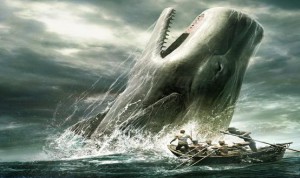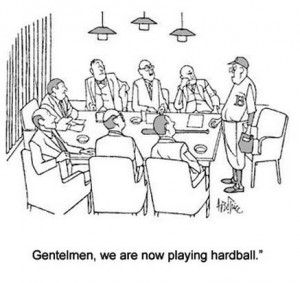He survived the crash. Now he’s wondering why. If you look closely at the image, you can see Mr. Whitby wedged between two semi-trucks. That little grey thing wrapped around him used to be his pickup. It was a Chevy Silverado. That’s one of the big trucks.
He was driving on an interstate in Oregon yesterday morning, before the west coast fog had burned off. He crested a hill to find a semi-truck jackknifed across the highway. In the span of a few seconds, one collision led to two others and a pileup involving some twenty cars. Mr Whitby hit the brakes immediately, but it was too late. He slammed into the back of the trailer.
Ten seconds later, another semi crested the same hill and smashed into Mr. Whitby’s stalled pickup.
A fellow named Sergi Karplyuk snapped the picture before he helped 27 year old Kaleb Whitby out of the wreckage. Mr. Karplyuk – another truck driver who narrowly avoided the wreckage – even asked permission to take the photo. The two of them managed to wiggle Mr. Whitby out of the broken window frame to safety. He needed two band-aids on his right hand. That’s it.
“Do you believe in miracles?” sportscaster Al Michaels once asked.
And maybe it is something along those lines that has Kaleb Whitby asking – why? Why did I survive? Looking at the picture of him trapped in that crushed truck, it is a thought-provoking scenario.
I finished a book the other night that promoted Why? as a theme. It’s a motivational-type story with a forward written by Urban Meyer, the coach of the just-crowned National Champion Ohio State Buckeyes. That alone may have been enough to spur the brisk sales of Todd Gongwer’s “Lead…for God’s Sake,” but when there are endorsements by folks like OU’s Bob Stoops who recommend the book as “must reading” for any coach at any level – that’s enough to send the title into the out-of-stock category.
Luckily, I got an order in early.
It isn’t the first book to imply that motivational tactics have to go beyond Reward and Punishment, and I won’t try to paraphrase Mr. Gongwer’s own approach to successful management. He does a good job of explaining why there has to be more involved in the creation of a winning team, whether it is on the playing field or in the corporate office.
Why – is a big question though. When players or employees realize that the coach or the boss has their best interests at heart, they respond like family… because they are. Hoping for the best, watching the backs of others, creating a comfortable (and some might say – loving) environment, and forgiving the unavoidable errors that are a part of life – those are the things done in a well-founded family.
When we ask ourselves “Why am I doing this?” and when the answer can be boiled down to “For others,” we can create scenarios for success and happiness. Sometimes the answer to the why-question takes some soul-searching.
The why-and-how-come facing Mr. Whitby will nag at him, as studies of survivors indicate. Survivors of catastrophes respond differently, of course, but many turn their interests toward the greater good, helping others, donating time toward charitable causes, or consoling those whose circumstances were not as fortunate.
And – why – am I passing this along?
I’m trying to justify my time here in the office watching Green Bay and Seattle, and Seattle has just recovered an onside kick late in the fourth quarter, so here is a good stopping point. Why?
Just because!
We’ll be serving it up Monday, so
Come visit!
McHuston
Booksellers & Irish Bistro
122 South Main St. Broken Arrow, OK!



